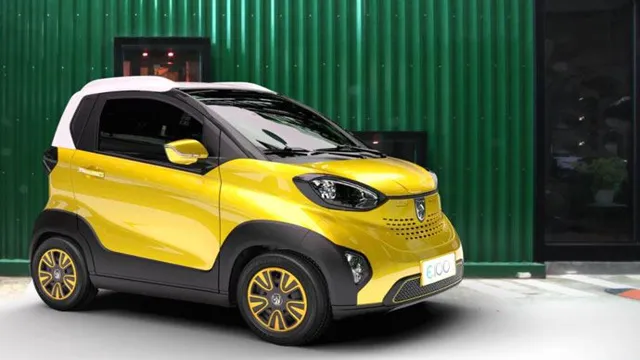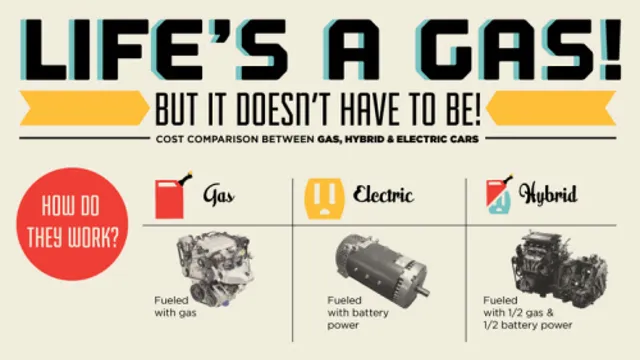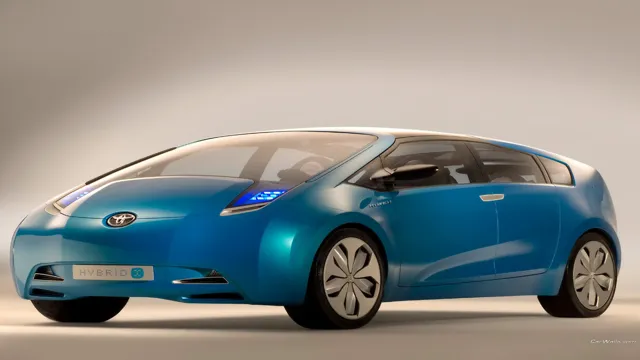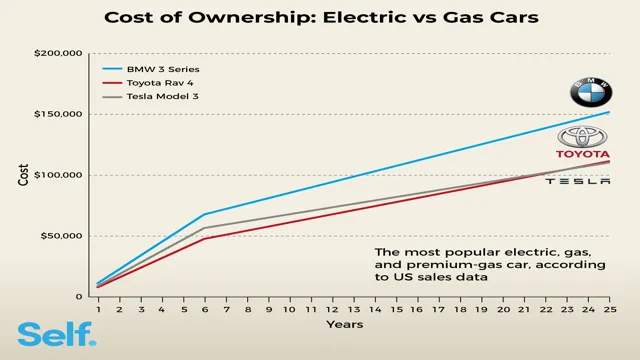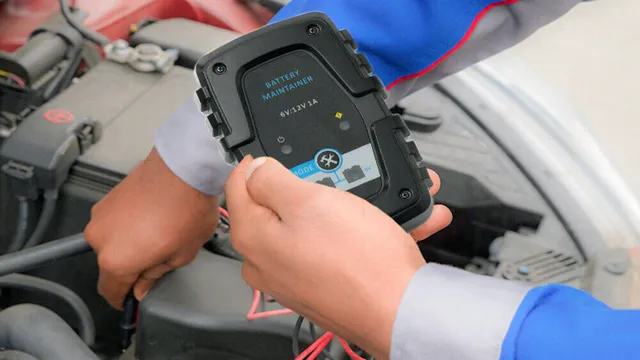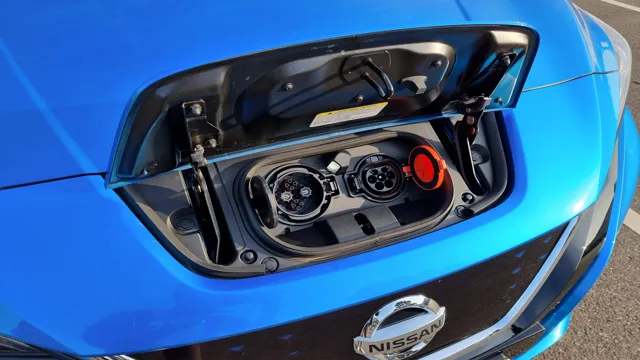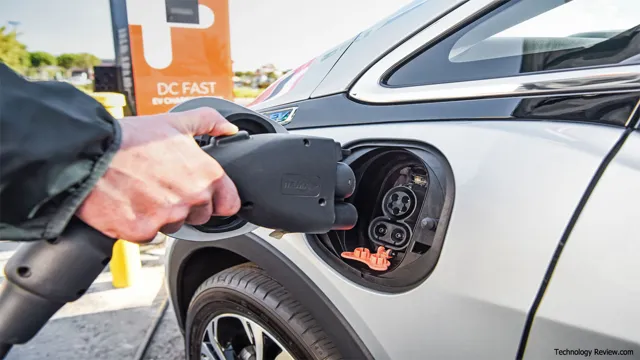Driving to Savings: Is an Electric Car Cheaper to Maintain?
Electric cars have come a long way in recent years. They’re more efficient, they have longer ranges, and they’re becoming more affordable. But there’s one question that prospective electric car owners always ask: Are they cheaper to maintain? The answer isn’t as straightforward as you might think.
While it’s true that electric vehicles generally require less maintenance than their gas counterparts, there are still costs associated with maintaining an electric car. In this blog post, we’ll take a closer look at the factors that affect the cost of maintaining an electric car, and we’ll help you determine whether an electric car is truly cheaper to maintain. Whether you’re considering buying an electric car or you’re just curious about how they stack up against traditional gas cars, this post is for you.
Initial Cost Comparison
When deciding whether to purchase an electric vehicle, one of the most common questions asked is whether electric cars are cheaper to maintain. While the initial cost of an electric vehicle is typically higher than that of a gas-powered car, the savings on maintenance costs can make up for it in the long run. This is because electric cars have fewer moving parts, which means there are fewer components that will wear out and need to be replaced.
Additionally, there is no need for oil changes or tune-ups, which can add up to significant savings over the life of the vehicle. Overall, even though the initial cost may be higher, the reduced maintenance costs of electric vehicles can make them a more economic choice in the long run.
Electric Car vs Gasoline Car
When it comes to the initial cost comparison between an electric car and a gasoline car, there are several factors to consider. While electric cars often have a higher initial purchase price, they also come with several benefits such as lower fuel and maintenance costs in the long run. Gasoline cars, on the other hand, have a lower initial cost but can end up costing much more in the long run due to higher fuel and maintenance costs.
Additionally, electric cars have a longer lifespan than gasoline cars and tend to retain their value better as they age. It’s important to weigh these factors when deciding which type of car to purchase, as the upfront cost is only one aspect to consider. Ultimately, it’s a decision that comes down to personal preferences and lifestyle needs.
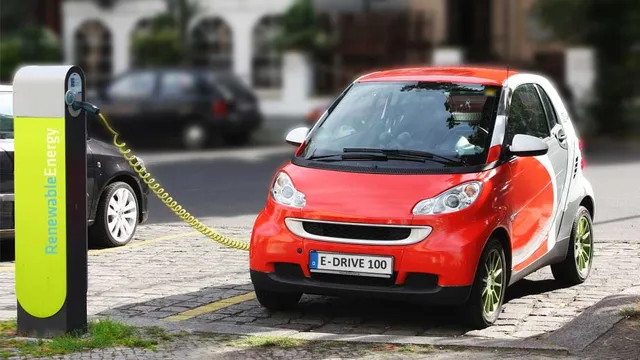
Factors to Consider for Maintenance Cost
When considering the maintenance cost of your equipment, it is important to take into account the initial cost comparison. While it may be tempting to opt for cheaper equipment initially, it is important to remember that lower initial costs may lead to higher maintenance costs down the line. Cheaper equipment may be more prone to breakdowns and require more frequent repairs, driving up your maintenance expenses over time.
On the other hand, investing in higher-quality equipment from the start may result in lower overall maintenance costs. While the initial investment may be higher, you can save money in the long run by avoiding frequent repairs and replacements. So, when comparing equipment options, it is essential to take into account both the initial cost and the potential maintenance expenses to make an informed decision.
Long-term Maintenance Comparison
When it comes to long-term maintenance, there is no doubt that electric cars are cheaper to maintain compared to traditional gas-powered vehicles. The reason behind this is that electric cars have a simpler powertrain with fewer moving parts, reducing the risk of breakdowns or malfunctions. Additionally, electric cars don’t require regular oil changes or engine tune-ups, saving you a considerable amount of money over time.
With fewer components to fix or replace, maintaining an electric car is generally less expensive than a gas-powered vehicle. Furthermore, electric cars come with a host of technological features to help keep them running at peak performance. For instance, many electric cars have advanced onboard computers that can diagnose and fix issues quickly, saving you time and money.
Additionally, electric cars have regenerative braking systems that reduce the wear and tear on brake pads and rotors, increasing their lifespan. In contrast, gas-powered vehicles rely on traditional braking systems that require regular replacement, causing maintenance costs to add up significantly. In conclusion, electric cars are cheaper to maintain in the long run, thanks to their simple powertrain, advanced technology, and regenerative braking systems.
While the upfront cost of purchasing an electric car may be higher, the savings in maintenance costs make them a more cost-effective option in the long term. So, if you’re looking to save money on your vehicle’s maintenance costs, an electric car is undoubtedly the way to go.
Battery Replacements and Maintenance
When it comes to battery replacements and maintenance, it’s important to consider the long-term maintenance comparison between different types of batteries. Lithium-ion batteries, for example, are becoming increasingly popular due to their high energy density and longer lifespan compared to traditional lead-acid batteries. While they may come with a higher upfront cost, the cost savings over time can be significant.
Lithium-ion batteries require less maintenance, have a longer lifespan and can be charged and discharged more times than a traditional lead-acid battery. Additionally, they are more environmentally friendly and easier to dispose of. By investing in a lithium-ion battery, you can save money and ensure that your battery lasts for a long time with less maintenance required.
Ultimately, the choice between a traditional lead-acid battery and a lithium-ion battery depends on your specific needs and budget.
Lesser Moving Parts in Electric Vehicle
When comparing electric vehicles to traditional gas-powered cars, one of the most significant advantages is the simplicity of the electric drivetrain. While traditional cars have hundreds of moving parts that require regular maintenance, electric vehicles have far fewer mechanisms that can break down over time. This means that over the long term, electric vehicles are generally less expensive to maintain than traditional cars.
One of the main reasons for this is that electric cars have fewer fluids that need to be changed, such as oil, transmission fluid, and coolant. Additionally, electric cars don’t have a traditional transmission, which means there are no gears to shift, reducing the risk of costly transmission repairs. All in all, the reduced number of moving parts in an electric vehicle means fewer components that can break down, resulting in lower long-term maintenance costs.
Cost of Charging vs Cost of Gasoline
When you compare the cost of charging an electric car versus the cost of gasoline for a traditional car, you may think that the initial purchase price is the only factor to consider. However, long-term maintenance costs can also play a significant role. Electric cars have fewer internal components, leading to less maintenance and repair costs over time.
Additionally, some electric cars are equipped with regenerative braking technology, which can extend the lifespan of brake pads and reduce maintenance costs further. On the other hand, gasoline cars require regular oil changes, spark plug replacements, and other maintenance tasks to keep the engine running smoothly. When it comes to long-term cost comparisons, electric cars can often come out ahead due to their reduced maintenance needs.
Conclusion
In the end, it’s clear that choosing an electric car can lead to significant savings on maintenance costs. While the initial investment may be higher, the reduced need for oil changes, transmission repairs, and other traditional maintenance tasks can result in long-term cost savings. Plus, with the added benefit of reducing your carbon footprint and contributing to a cleaner environment, the choice to drive electric just makes sense.
So, next time you’re deciding between a gasoline or electric vehicle, remember that the smart and cost-effective choice is clear: go electric!”
Summary of Maintenance Cost Comparison
When it comes to the long-term maintenance costs of various equipment options, there is no clear winner. Each option has its own unique set of pros and cons, and it largely depends on the specific needs of the user. For example, while traditional equipment may require more frequent maintenance and potentially higher costs, it may also have a longer lifespan and be more reliable in the long run.
On the other hand, newer technologies may require less maintenance but may also have higher initial costs. It’s important to carefully consider all factors, such as equipment durability and maintenance needs, before making a decision. Ultimately, when it comes to long-term maintenance costs, it’s all about striking the right balance between cost and efficiency.
Environmental and Future Cost Savings
When it comes to maintaining a building, there are several factors to consider. Apart from the immediate costs, it’s important to think about the long-term maintenance expenses and environmental impact. While traditional buildings may seem cheaper to maintain, modern constructions have a significant advantage when it comes to long-term maintenance and environmental impact.
For instance, a building with energy-efficient technology can greatly reduce the energy consumption and costs over time. Moreover, sustainable materials, such as recycled steel or bamboo, can further ensure longevity and lower maintenance costs. When comparing long-term maintenance costs, it’s also essential to consider the savings from repairing and replacing less often, avoiding the potential for unforeseen surprises that can be costly and time-consuming.
So, even though modern construction may seem initially more expensive, in the long run, it can be the more cost-effective and environmentally conscious option.
FAQs
Are electric cars cheaper to maintain compared to gasoline cars?
Yes, electric cars require less maintenance because they have fewer moving parts and don’t require oil changes or tune-ups like gasoline cars.
What are some of the maintenance costs associated with electric cars?
The main maintenance costs for electric cars are tire rotations, brake pad replacement, and battery replacements. However, these costs are still lower than the maintenance costs for gasoline cars.
Can I perform the maintenance on my electric car myself?
Some basic maintenance tasks such as tire rotations and wiper blade replacements can be easily done at home. However, more complex tasks such as battery replacements should be performed by professionals to maintain the warranty.
Are there any additional costs associated with owning an electric car?
While electric cars have lower maintenance costs, there may be additional costs associated with purchasing and installing a home charging station and upgrading your electrical infrastructure to support charging. However, many governments offer incentives and rebates to offset these costs.
